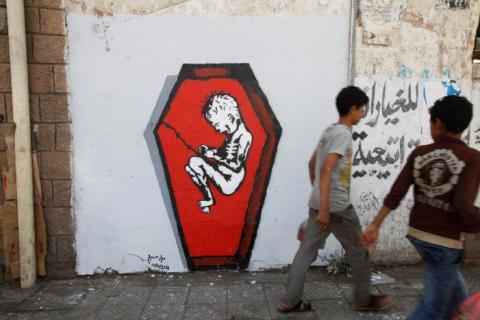Yemen’s Prime Minister Returns to Aden


Yemen’s Prime Minister Khaled Bahah arrived in the southern port city of Aden Wednesday after months of exile in Saudi Arabia.
Local officials and Saudi state media said Mr. Banah flew to Aden with several of his ministers after spending almost six months working from Saudi Arabia. The move appeared to be a step toward the establishment of a government in Aden to rival the one in the capital, San’a, which is controlled by Houthi rebels.
President Abed Rabbo Mansour Hadi remained in exile in Riyadh, having fled Aden in March.
A spokesman for the exiled government didn't return requests for comment.
Mr. Bahah’s return follows months of fighting between the Houthis and a Saudi-led coalition that aims to return Mr. Hadi to power.
The conflict has upended Yemen’s political order and drawn deep divisions between the north, which remains largely under rebel control, and the south, whose de facto capital, Aden, is secured by coalition forces.
After Houthi rebels took over Yemen’s San’a-based government in February, Mr. Bahah and Mr. Hadi fled first to Aden, then to Saudi Arabia.
The Saudi-led military coalition, which sees the Houthis as an illegitimate movement backed by Shiite Iran, then began a campaign of airstrikes against the militants. Saudi Arabia is the Persian Gulf’s main Sunni Muslim power, while the Houthis are part of the Zaidi offshoot of Shiite Islam.
After a monthslong war of attrition that has led to the death of more than 4,000 civilians, a surge of coalition ground troops has in recent months tipped the balance against the Houthis. Backed by allied Yemeni fighters, coalition forces took Aden in July and expanded their control to several southern provinces.
Some Yemeni government personnel returned to Aden after the coalition retook the city in July.
An assault is under way to wrest central Marib province from the Houthis, to use it as a staging ground as coalition forces draw closer to the San’a.
The security vacuum created by the conflict has allowed terrorist groups, including local offshoots of Islamic State, to consolidate territory under their control. Al Qaeda in the Arabian Peninsula, considered one of the world’s most dangerous terrorist groups, has also seized territory in the south and southeast of the country since the conflict began.
WSJ

Paris — The French humanitarian organization Acted announced that it has delivered cash assistance to nearly 89,000 people affected by displa…

Sana’a — Fuel and food imports into ports under the control of Yemen’s Houthi movement on the Red Sea have continued to fall for…

ADEN — Yemen Airways, the country’s national carrier, announced it will resume flights between Aden and Abu Dhabi beginning in January…